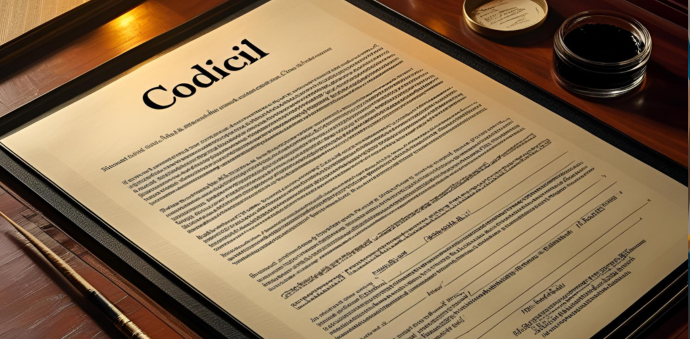Codicil: Purpose, Use, and How to Download the Right Template for Your State
A Codicil is a legal document that serves as a supplemental amendment to an existing will. It enables the testator (the person who made the will) to make minor changes, updates, or additions to their will without the need to rewrite the entire document. Codicils are useful for keeping wills current with changing circumstances, such as adding or removing beneficiaries, changing executors, or updating specific bequests.
What Is a Codicil?
A Codicil is a separate, written document that references and modifies provisions of an original will. It must be executed with the same formalities as the original will, meaning it requires the testator’s signature and typically must be witnessed in the same manner. The codicil becomes part of the will upon the testator’s death and is read along with the will during probate.
Purpose of a Codicil
- Make Minor Amendments: Adds, changes, or revokes certain provisions in the will without creating a new will.
- Update Executors or Beneficiaries: Allows changes to executors, guardians, or beneficiaries due to changes in relationships or circumstances.
- Correct Errors or Clarify Language: Fixes mistakes or reduces ambiguities in the original will.
- Add or Remove Bequests: Adjusts specific gifts or inheritances as needed.
- Avoid the Cost and Effort of a New Will: A faster, simpler way to keep a will current.
Who Should Use a Codicil?
- Individuals who want to make small or straightforward changes to their existing will.
- Testators who want to avoid drafting a completely new will.
- Anyone needing to update their estate plan due to life events such as marriage, divorce, birth of children, or death of beneficiaries.
- People who want to revise executor or guardian appointments.
Key Components of a Codicil
A well-drafted codicil typically contains:
- Reference to the Original Will: Clear statement identifying the will it amends.
- Specific Changes: Precise description of which provisions are added, modified, or revoked.
- Testator’s Signature: Signed by the person making the codicil.
- Witnesses’ Signatures: Compliant with state law, usually two witnesses.
- Date of Execution: To establish when the codicil was made.
- Declaration: Affirmation that the codicil is a legal amendment to the existing will.
Why Use a State-Specific Codicil Template?
Notarization and witnessing requirements, wording preferences, and legal formalities for codicils differ among states. Using a state-specific codicil template ensures:
- Compliance with your state’s legal formalities to make the codicil valid.
- Inclusion of the correct language and witness requirements for your jurisdiction.
- Avoidance of common drafting errors that might invalidate the codicil.
- Proper integration with your existing will to prevent probate complications.
How to Download the Correct Codicil Template for Your State
LawPassport.com offers professionally drafted, fully customizable codicil templates tailored to your state’s specific legal requirements:
- Visit LawPassport.com.
- Select your state to access the appropriate codicil template.
- Customize the document online with your specific amendment details.
- Download, print, or digitally share your completed codicil for proper execution.
Keep your estate plan up to date with ease and confidence. Sign up at LawPassport.com today to download the correct Codicil template for your state and make minor, legally compliant amendments to your will without unnecessary hassle.
Read: Cleaning Services Agreement – Download Template for Every State
